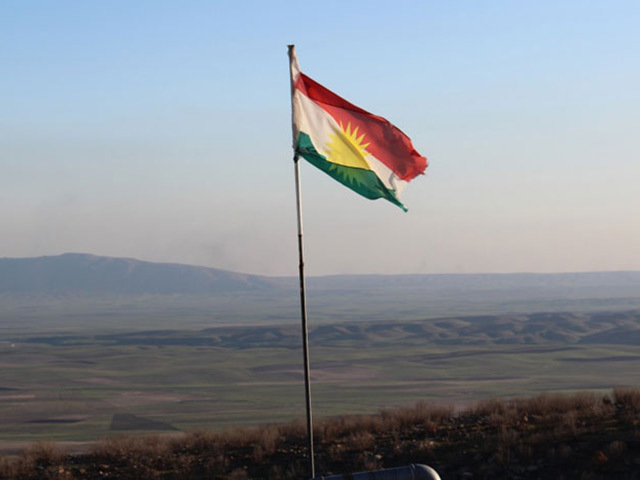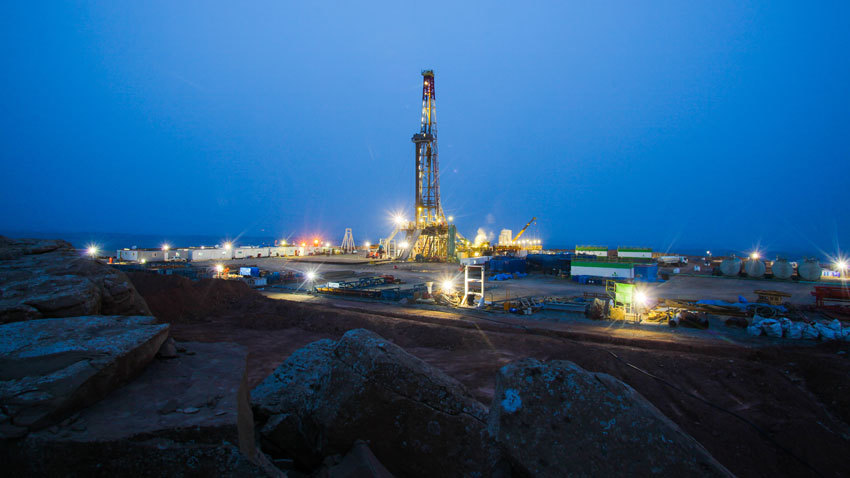
The Iraq-Turkey pipeline closure has dragged on, despite the statements from those seeking to restart exports.
A court order stopped flows on March 27. Iraq won its arbitration case against Turkey, with a ruling finding that Kurdistan lacked the authority to export crude independently of Baghdad.
While Iraq won its case, the finding was welcomed from Turkey, which had feared a higher penalty. The court ordered Turkey to pay $1.47 billion in compensation, far lower than the potential $20bn that had been discussed.
Now, while talks are under way to restart flows, Turkey has the upper hand and Baghdad is keen to capture revenues from the link. The hardest hit from the blockage are Kurdistan – and oil producers in the region.
Turkish President Recep Tayyip Erdogan is expected to visit Baghdad at some point. Quite when this will happen is unclear.
Iraqi Prime Minister Mohammed al-Sudani has said the loss of Kurdish exports has caused “significant harm” to the country’s budget.
Pipeline squeeze
TAQA reported on Monday that its local unit, TAQA Atrush, had “ceased operations” in Iraq as a “result of the international arbitration ruling on the Iraq-Turkey oil pipeline dispute”.
ShaMaran Petroleum, reporting results last week, said revenues in the second quarter had fallen to $6.5 million. The same quarter in 2022 saw revenues of $44.84mn. ShaMaran is a partner on Atrush.
The company CEO and president Garrett Soden said the closure had “materially impacted all Kurdistan oil producers during the second quarter of 2023. Discussions are ongoing between Ankara, Baghdad and Erbil to find a political solution.”
Soden said the three governments “should be aligned to reopen the pipeline and to resolve the outstanding payment issues with international oil companies”.
Other companies are less sure.
HKN Energy, reporting its own results last week, said it had “little confidence” that the Iraq-Turkey link would open soon.
HKN went on to warn that problems in Kurdistan ran deeper than pipeline stoppages, though.
Funding problems for PSCs
The Iraqi budget will not provide enough cash to Kurdistan to meet obligations under production-sharing contracts (PSCs), HKN said. The US-based company cited conversations with Kurdistan government officials.
Iraq provided $457mn to Kurdistan earlier in August. HKN quoted the government official as saying Kurdistan required $698mn per month to cover salaries and pensions.
The Association of the Petroleum Industry of Kurdistan (APIKUR) called for Erbil and Baghdad to recognise the legitimacy of producers’ rights. “It is essential to the future of the industry in these regions, and the many jobs it supports, that the outcome of the negotiations include the cost recovery and profit”, APIKUR said.
Under the PSC model, the foreign companies “take all the financial risk”. If they are successful, Kurdistan “keeps the majority share of the reward”.
For Kurdistan to reach its target of 400,000 bpd – as required by the federal government – the region “will be reliant upon production from the IOC operated fields”, APIKUR noted.
DNO Iraq, Genel Energy, Gulf Keystone Petroleum, HKN and ShaMaran formed APIKUR in February this year. At the time, in letters sent to the US and UK governments, the association said new investments could not continue given the “increasingly hostile business environment”.
Local producers have struggled for some time to secure funds from the Kurdistan government. It owes HKN $190.7mn in overdue invoices, from October 2022 to March this year. Genel Energy claims $110mn in overdue invoices, ShaMaran $96.7mn.
Central spending
HKN went on to say future financing from Baghdad depended on exports from Kurdistan of at least 400,000 barrels per day.
“It is unclear whether [Kurdistan] could provide commercial assurances to oil producers sufficient to achieve a production level” of at least 400,000 bpd, HKN said. Should the flows fall below this volume, it is unclear what impact there would be on payments from the central government to Kurdistan.
All the local producers have cut spending as exports became impossible. Increasing uncertainty around payments under PSC commitments will act as an additional brake on spending plans.
APIKUR reported that its members had cut spending by around $400mn in 2023, with plans for 2024 in doubt.
Genel recently announced it was relinquishing its stake in the Sarta field. The company said the investment environment had made its plans for the field “more challenging”. As a result, the company is giving up its licence and ending the PSC. Genel gave up on its Qara Dagh licence in 2022.
Kurdistan is fighting its corner with the central government. It has held talks on the Oil and Gas Federal Law with the central government. Erbil has argued the law must have support from Kurdistan and oil producing states, as well as Baghdad.
For now, though, with pipeline uncertainty coming in addition to the pile of overdue invoices, the future for Kurdistan – and its oil producers – seems bleak.

